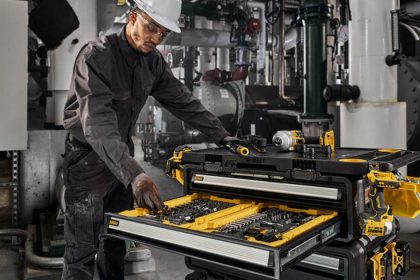The NSW Building Commission aims to demolish the toxic culture within the state’s construction industry, with one-in-two women revealing they have been sexually harassed while on the tools.
A major research report released last week by the statewide regulator has called on the deconstruction of outdated industry norms to attract women towards a career in construction and address essential labour shortages.
The Building Commission NSW Women in Construction Report outlines several key recommendations to increase female participation across the sector.
The key findings also take aim at systemic challenges women face while in the construction game in a bid to increase female worker retention.
Currently, small to medium construction businesses make up 80 per cent of the industry but employ less than five per cent of women, while 35 per cent of those employ no women at all.
This small representation could be a result of sexist prejudice permeating male-led trade firms, with 42 per cent of male employers declaring the physical requirements of the industry are too high for women – an opinion only held by 13 per cent of female employers.
Meanwhile, the reality isn’t much better for those women already working within the construction industry, with more than 7 out of 10 saying they have experienced discrimination, while 50 per cent have been victims of sexual harassment.
Rather than address the harassment issues, some businesses claimed they avoid hiring women entirely just to dodge any repercussions which may occur as a result of targeted inappropriate behaviour by male staff.
Wendy Pinch, founder of tradeswomen community platform, The Lady Tradie, told Build-it she was appalled that some businesses were seemingly eager to avoid hiring female workers in hopes of avoiding potential sexual harassment allegations.
“My first thought on that is any employer who thinks that is the solution clearly doesn’t think that much of their employees & fellow workmates,” Ms Pinch said.
“I’ve heard some excuses in my time, but I find it incomprehensible that anyone would state ‘that’ as a reason not to employ women when women can bring so many skills, attributes & benefits to the workplace.”
Ms Pinch warned construction businesses choosing to work around the problem of sexism may save themselves a few headaches at work, but choosing to accept and sidestep these issues would undoubtedly fuel societal problems that could hit closer to home.
“Sexual harassment in the workplace doesn’t just happen in construction, so how would they feel if that happened to their wife, daughter, sister, etc, in another industry, and it wasn’t addressed?”
NSW Building Commission manager David Chandler says attracting more NSW women to the trades in 2024 was essential to build the workforce required to overcome the state’s housing supply crisis.
“The Women in Construction report provides informed recommendations to increase women’s participation in the industry and address some of the systemic challenges they face,” he said.
“By improving the workplace for all genders it will encourage more women to join the industry and help to address the projected shortfall of 100,000 skilled construction workers.”
The report’s recommendations outline several barriers preventing women from starting their construction career journey, which must be rectified to meet growing labour demands.
Identified issues include negative industry perceptions, insufficient business and HR knowledge and poor workplace culture.
Mr Chandler encouraged all construction businesses to read the report and consider its conclusions, which he says will benefit the industry as a whole if implemented.
“I am calling on all industry stakeholders to consider the findings and actionable recommendations,” he said.
“The participation and retention of women across NSW in the construction industry will deliver the benefits of a more diverse and inclusive industry which increases innovation, improves productivity, and leads to stronger economic performance.”
The full research report and key findings are available here.







